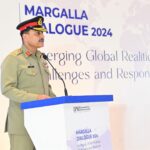UNITED NATIONS: Pakistan has told the United Nations Security Council that the Afghan Taliban’s “safe havens” are inside Afghanistan, given the large areas they control in that war-torn Country.
Pakistan’s Permanent Representatives to the UN Ambassador Maleeha Lodhi said during a debate on Afghanistan that the resilience of the insurgency led by the Taliban cannot be explained away by convenient references to external ‘safe havens’ or ‘support centers’.
Maleeha Lodhi asserted, that Pakistan was committed not to allow its territory to be used for terrorism against other countries. Pakistan’s Zarb e Azb and the subsequent Radd-ul-Fasaad military operations had succeeded in eliminating all terrorist and militant groups from its tribal territory bordering Afghanistan.
The ambassador told the 15 member Council that Pakistan is “implementing border controls, including the fencing and monitoring of vulnerable sections of the Pakistan-Afghanistan border.”
In response to some provocative remarks made by her Afghan counterpart during the debate, she said that “As a country that continues to host over two million Afghan refugees, Pakistan expects the gratitude and not hostility from the Afghan government.”
The main thrust of ambassdor Lodhi’s remarks centered around the need for a negotiated end to the Afghan war. She said that it had been Pakistan’s consistent position that peace could be restored only through a negotiated settlement between Kabul and the Tehrik-i-Taliban Afghanistan.
“This, she pointed out, ‘has also long been the consensus of the international community,” noting that a negotiated peace was also backed by UN Secretary-General Antonio Guterres, who recently visited Kabul.
Maleeha Lodhi said that “the promotion of a political settlement and the pursuit of a military solution in Afghanistan are mutually incompatible.”
Continued reliance on a military option, or enhancing troop numbers without an accompanying political strategy, would only lead to more violence and bloodshed, Ambassador Lodhi told the Security Council. “It would not yield a political settlement.”
Stressing the need to find a negotiated solution, she said that “Over the years, Pakistan has done what it can, when asked, to help facilitate such a negotiated settlement.” She referred in this regard to the 2015 Murree talks and efforts under the Quadrilateral Coordination Group (QCG) framework; as also her country’s engagement with the Heart of Asia conference, International Contact Group, Moscow Format, and, most recently, the Kabul process, among others.
But she made it clear that while others could help by promoting a negotiated settlement, peace could only be negotiated when the Afghan parties desired it and eschewed a military solution.
“Today there is every reason for the Afghan parties, and their friends, to pursue the path of a negotiated peace. All of them face a common threat from ISIS and the terrorist groups affiliated with it,” she said. “Among them, the TTP and the Jamat ul Ahrar target Pakistan from their bases in Afghanistan.”
“There is no other country, which will gain more from peace in Afghanistan,” ambassador Lodhi said.
“We are confident that, whatever our differences in the past, in the end, the deep bonds of religion, culture, history and geography between Pakistan and Afghanistan will assert themselves and produce an era of peaceful and mutually beneficial cooperation between our nations,” she added.
Earlier in a scathing report, the Special Representative of the Secretary-General Tadamichi Yamamoto warned that the recent surge of violent attacks in Afghanistan could signal a much worse and more fragile period ahead, as he called for urgent action to strengthen stability, including through improving the Government’s credibility, and urged all parties to exercise restraint and avoid violence.
“The months since my last briefing have been unusually tense in Afghanistan, “he said.
“Without enhanced efforts by the National Unity Government to increase political inclusiveness, strengthen accountability, and improve the Government’s credibility, particularly in the security sector, we are likely to face more crises in an increasingly fragile environment.”
In his briefing to the Council, the senior UN official spoke of the emerging difference following the May 31 terrorist attack in Kabul and warned that violent extremist groups could try to exacerbate the divisions, especially along sectarian lines.
Urging all sides to exercise restraint and avoid violence, Yamamoto underscored the need to address the root cause of the issues and reminded national actors that efforts to build consensus and political stability are critical.
On his part, the Afghan Ambassador Mahmoud Saikal said reversing the tide against terror was contingent on eliminating support centres beyond the country’s borders that produced, nurtured and empowered terrorists operating in Afghanistan.





